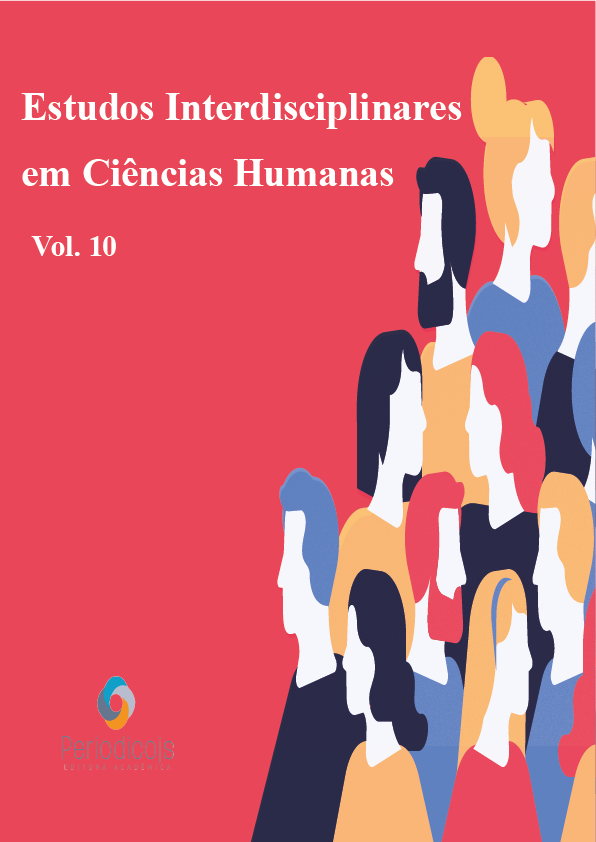Abstract
This article addresses the topic of the ambient room and diversified pedagogical resources, choosing as a research problem how the use of diversified pedagogical resources and active methodologies in the ambient room can contribute to improving student teaching and learning? The guiding research questions are how to structure the ambient room with pedagogical resources so that it is not a fixed room that is just decorated? How can the ambient room, diverse pedagogical resources and active methodologies contribute to improving student behavior and learning? What is the relevance of creating ambient rooms in schools that belong to the Comprehensive Education Program and that can contribute to the teaching and learning process? As a central assumption, the use of diversified pedagogical resources and active methodologies in the classroom environment contribute to improving student teaching and learning. The specific objectives are to relate the positive results of students’ grades with the use of diversified pedagogical resources and active methodologies in the ambient room, record the main contributions in the teaching and learning process using diversified pedagogical resources and active methodologies in the ambient room, verify the relevance of implementing the environment room in schools belonging to the Comprehensive Education Program. Quali-quanti research was selected for the preparation of this research and the case study as an investigation method. The analysis of the research data demonstrated advances in the results in the evaluation of the School Performance Assessment System of the State of São Paulo, according to the Education Development Index of the State of São Paulo of 2018 for the year 2017, the school’s index passed from 1.60 to 3.30. In 2019, the 6th year A class achieved 86.42 correct answers in the Process Learning Assessment result and the 7th year A group achieved 72.67 in the same assessment, all of these classes participated in the ambient room experience.
References
ALMADA, Leonardo Ferreira. (dezembro, 2014). A neurociência afetiva como modelo explicativo das emoções básicas. Psicologia Argumento. Recuperado de https://www.academia.edu/
BRUNER, Jerome. (1996) Cap. 1: Cultura, mente y educación. En La educación, puerta de la cultura. Madrid: Aprendizaje Visor.
CAVALCANTI, Lana. de Souza. Ensino de Geografia e diversidade: Construção de conhecimentos geográficos escolares e atribuição de significados pelos diversos sujeitos do processo de ensino. In: CASTELAR, S. (Org.) Educação geográfica: teorias e práticas docentes. São Paulo: Contexto, 2005.
CONSENZA y Guerra. Neurociencia e Educação: como o cerebro aprende – Porto Alegre: Artmed, 2011.
COSTA, Antônio Carlos Gomes. Por uma pedagogia da presença. Petrópolis: Vozes, 1991.
CUDA, Mariela. Neurociencias, Didáctica, y Pedagogía: aportes de la escuela de hoy. 1ª ed. Ciudad Autonoma de Buenos Aires: Bonum, 2018.
DIESEL, Aline ; Alda Leila Santos Baldez ; Silvana Neumann Martins (2017) Os princípios das metodologias ativas de ensino: uma abordagem teórica. Revista THEAMA, Volume 14 | Nº 1 | Pág. 268 a 288. http://dx.doi.org/10.15536/thema.14.2017.268-288.404
GARDNER, H. (2001). Inteligência: um conceito reformulado. (Silva, A.C., Trad.). Rio de Janeiro: Objetiva. (Original publicado em 1999).
GARDNER, (2005) Mentes que mudam (Veronesi M.A.V., Trad.). Porto Alegre: Bookman, Artmed. (Original publicado em 2004).
GOLEMAN, D. (1998). La Práctica de la Inteligencia Emocional. Barcelona: Kairós.
LORIERI, Marcos Antônio. (2007). Trabalhar com Filosofia na educação: necessidade e possibilidade. Programa de Pós-graduação em Educação da Uninove. Recuperado de https://www.revistas.ufg.br/
MAHONEY, A. A.; ALMEIDA, L. R. de. Afetividade e processo ensino-aprendizagem: contribuições de Henri Wallon. Psicologia da educação, v. 20, p. 11-30, 2005. ISSN 1414-6975.
MERKER, Alejo. (septiembre, 2016). Psicología positiva, neurociencias y formación docente: una propuesta para la construcción de un espacio curricular en las carreras de formación docente. RIDAA – Repositorio institucional digital de acceso abierto de la universidad nacional de Quilmes. Recuperado de http://creativecommons.org
MONTEIRO JUNIOR, W. A Transdisciplinaridade entre Filosofia, Pedagogia e Psicologia para um ensino útil, humano e sensível. Direitos sociais e políticas públicas / Daniel Giotti de Paula, Diego Machado Monnerat, Lucas Manoel Silva Cabral e Rosangela Tremel (organizadores). – Rio de Janeiro: Pembroke Collins, 2020. p. 641-651.
MORA, Francisco. (2013). Neuroeducación: solo se puede aprender aquello que se ama. Alianza editorial. Recuperado de https://www.amazon.com.br/
MORIN, E. (1996). Introducción al pensamiento complejo. Gedisa
MORIN, Edgar. Educação e complexidade: os sete saberes e outros ensaios. Edgar Morin; Maria da Conceição de Almeida, Edgard de Assis Carvalho, (orgs) – 4ª ed. São Paulo: Cortez: 2007.
Pesquisa em site: https://sed.educacao.sp.gov.br/NCA/Relatorio/RelatorioAAP#, acesso em 21/04/2021, às 21h20.





